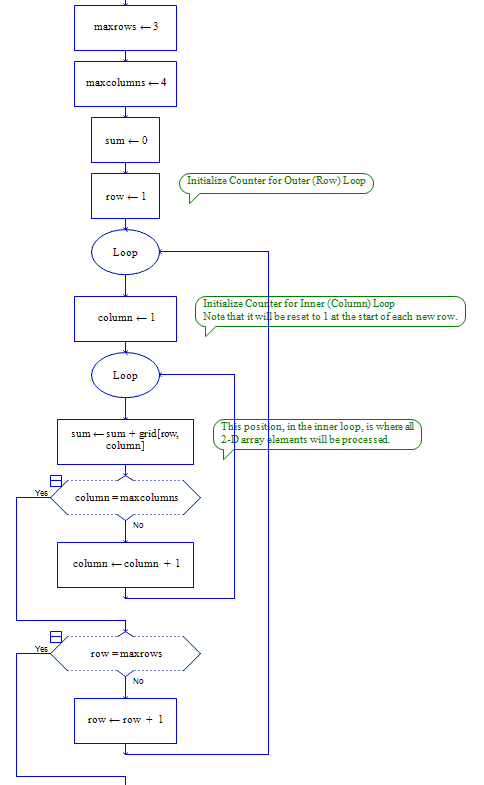
Two-dimensional arrays are used when programs model data laid out as a grid or matrix. While one-dimensional arrays are indexed by a single value, two-dimensional arrays have two indexes separated by a comma in the square brackets following the variable name. We can visualize a two-dimensional array called grid as below, where the names of the array elements are shown, not their values:
|
grid[1,1] |
grid[1,2] |
grid[1,3] |
grid[1,4] |
|
grid[2,1] |
grid[2,2] |
grid[2,3] |
grid[2,4] |
|
grid[3,1] |
grid[3,2] |
grid[3,3] |
grid[3,4] |
The numbers in the square brackets are the row and column indexes. They distinguish between the different variables falling under the name grid.
Below is a slightly different visualization, this time showing sample values in the variable memory locations and the indexes above and to the left of them.
|
grid |
1 |
2 |
3 |
4 |
|
1 |
3 |
8 |
6 |
15 |
|
2 |
2 |
9 |
12 |
14 |
|
3 |
6 |
11 |
18 |
13 |
With the example values above, grid[3,2] has the value 11, and grid[2,4] has the value 14.
Processing Two-Dimensional Arrays
One-dimensional arrays are often processed using counting loops. To process all elements of a two-dimensional array, nested loops, one inside the other, must be used. Usually, the outer loop counts through the rows (in the example above, it would count from 1 to 3), while the inner loop counts through the columns (from 1 to 4 in the example). The example below determines the sum of all elements in the grid array.
